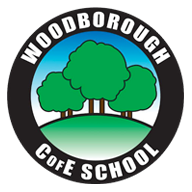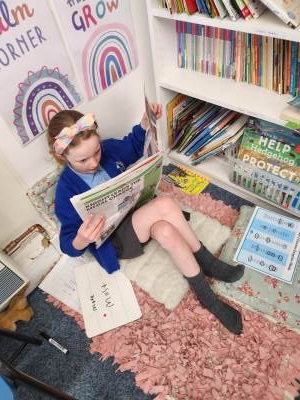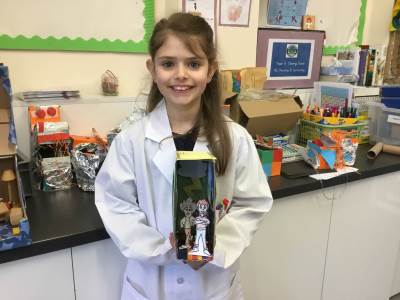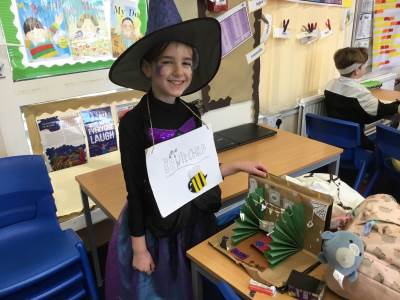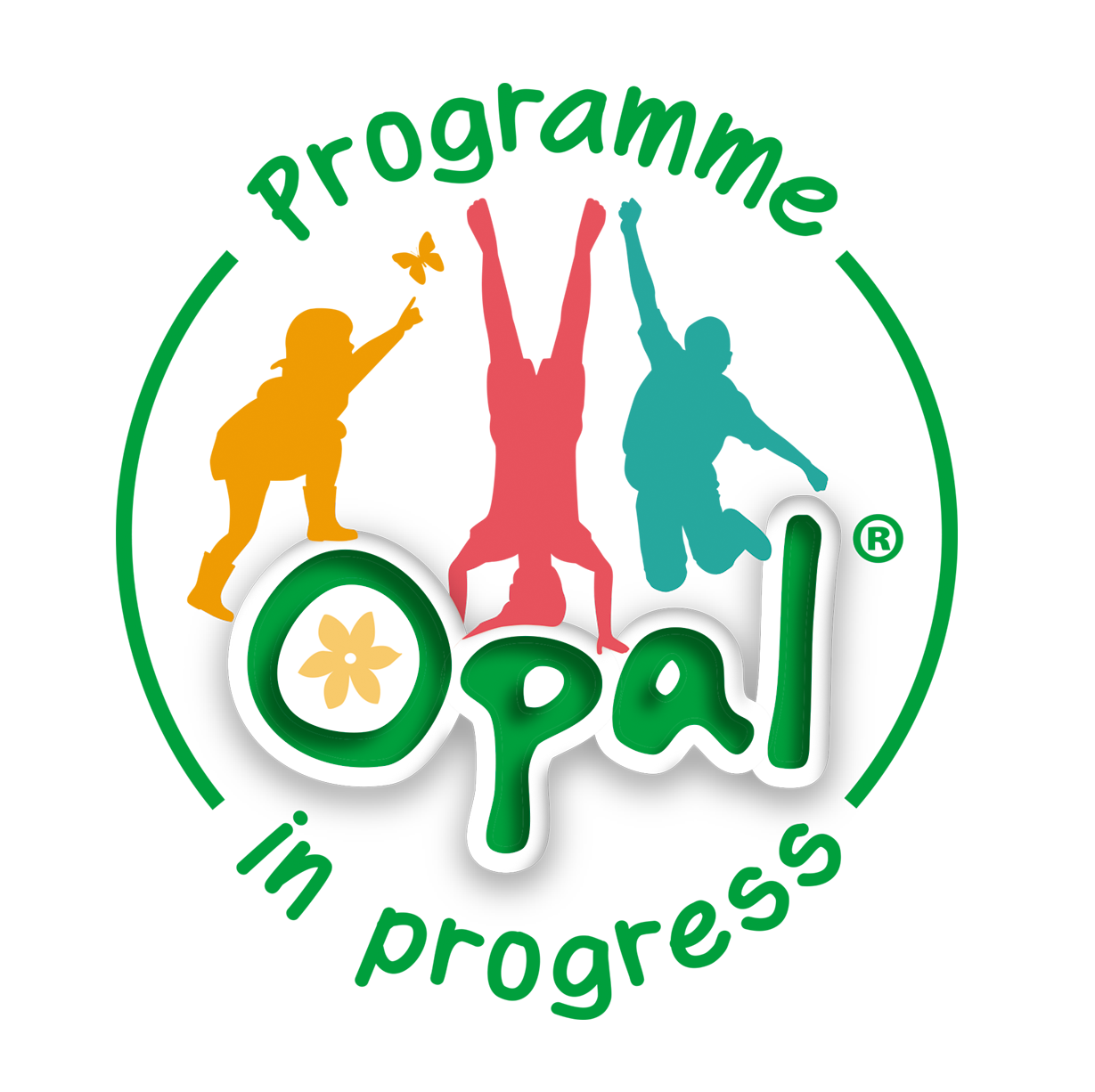English
Intent
The overarching intent for English is to:
- promote high standards of oracy and literacy
- equip pupils with a strong command of the spoken and written word
- develop their love of literature through widespread reading for enjoyment.
At Woodborough School, we place English at the heart of our curriculum as we believe it provides the fundamental skills for learning and life. We aim to instil in our children a love of speaking and listening, reading and writing that will last them a lifetime.
Reading is promoted as an intrinsic part of teaching and learning; it forms a pivotal part of our curriculum. We recognise the importance of nurturing a culture where children read widely with fluency, confidence, appreciation and for pleasure. We aim for our children to write for enjoyment, with confidence and accuracy for a variety of purposes and audiences whilst developing their own individual flair. We want our children to be able to write with grammatical accuracy and be able to apply spelling patterns correctly whilst using a cursive handwriting style. We expose our children to a wide range of vocabulary so they can decipher new words and then use them when speaking both informally and formally.
Careful links are made across the curriculum to ensure that children’s English learning is relevant and meaningful: where possible linking our reading, writing and the topic that we are covering in Religious Education, Science, History and Geography. We ensure that children develop an understanding of how widely writing is used in everyday life and, therefore, how important and useful the skills are that they are learning.
Implementation
Reading
Reading
Systematic synthetic phonics (SSP) is taught from Reception and throughout Key Stage One, using Little Wandle revised SSP supported by a range of practical methods. Synthetic Phonics is a way of teaching reading. Children are taught to read letters or groups of letters by saying the sound(s) they represent. Children can then start to read words by blending (synthesising) the sounds together to make a word.
At Woodborough School we follow a systematic approach where each grapheme is introduced clearly; a focus is placed on blending to read and segmenting to spell. This focus provides children with the skills they need to begin to read words, captions and whole sentences as soon as possible. Pupil progress is tracked closely to identify any pupils who fall behind, so that targeted additional support is given. This approach is continued into Year 3 to address any gaps in phonic knowledge. The lowest 20% of children in Years R-3 receive daily one to one phonics tuition.
In Reception, Key Stage One and Lower Key Stage Two fully decodable reading books are matched to the phonics phase in which the children are working. At Woodborough, we use Collins Big Cat Phonics and Oxford Reading Tree. In Key Stage Two, reading at home remains a high priority. Children have access to a wide range of age-appropriate, high quality texts from class reading areas, which they use for reading at home and in school.
Throughout the whole school children are encouraged to read daily at home, this is recorded in their Reading Record or Homework Diary and success stamps are awarded for those who read every day. Reader of the Week is used as an incentive for regular reading in Reception and Key Stage One. Research shows that children who read daily develop reading fluency at a more rapid rate and become more confident, eloquent writers. We aspire to do this for all our children.
To develop the reading for pleasure culture throughout the school we have: a themed book week each year; Year 6 children are appointed as reader leaders, and as a part of this role, they produce a termly reading newsletter and we display an author wall to promote a broad variety of recommended texts. The school takes part in organised local literature events where children are able to experience inspirational author talks, competitions and workshops. Teachers use techniques such as ‘Let’s Talk Books’ to engage children in discussion about books and to prompt recommendations among peers.
Our Poetry Spine has been developed to allow children to experience poetry from a wide variety of poets from traditional to modern. Each class shares at least a poem a week in a range of ways such as performance, illustrations, exploring language and meaning. EYFS and KS1 learn a poem, nursery rhyme or song each day to reinforce language patterns,repetition, rhythm and sounds.
In Reception and KS1, we listen to children read in small group sessions. Children identified as working within the lowest 20% or not reading regularly at home are listened to daily. In Year 1, teacher-led guided reading sessions take place weekly in small groups. Children read a carefully selected engaging text over several sessions. The first session focuses on the graphemes being taught, tricky words and reading fluency. The following sessions return to the text and challenge the children to explore the content of the book; for example, looking at vocabulary choices, word meaning and retrieving key information.
From Year 2, children take part in whole-class reading sessions that are undertaken daily. The focus here is on vocabulary development, the development of specific reading skills and immersion in a wide range of texts. These lessons use class novels as a stimulus for deeper thinking and link a range of fiction and non-fiction texts in order to further develop contextual knowledge and understanding.
In addition to this, all class teachers read novels to their class for 15 minutes per day. Class novels are selected from our School Reading Spine which includes a range of high-quality, age-related text types covering: archaic language, non-linear sequences, narratively complex, figurative texts, resistant texts and diversity. High-quality non-fiction texts have been selected for class book areas which link to foundation subjects.
Writing
Units of writing are sequenced and planned around the four purposes for writing: to entertain, to inform, to persuade and to discuss. These units show progression throughout the school, ensuring children are exposed to a range of fiction, non-fiction and poetry writing. Children have opportunities to write at length in extended, independent writing sessions at the end of a unit of work – applying their taught skills to an unsupported piece of writing. Often, teachers use class novels, themed days, trips or cross-curricular stimuli to inspire writing for a meaningful purpose and audience.
As part of a writing unit, high-quality model texts are shared with the children, text features are explored and language patterns identified. Grammar and punctuation, which feature within the text type, are taught within the sequence of lessons. Stand-alone grammar and punctuation lessons are also taught to introduce, reinforce and consolidate where necessary. Children are expected to apply the grammar and punctuation skills, which they have been taught, in their extended pieces of writing. A fundamental part of the writing process is the teacher leading a shared or modelled write with their class - articulating the decisions they make as writers in terms of language patterns, vocabulary choices and sentence construction. Once children have written an independent piece of writing they are taught how to edit their writing using resources available to them in the classroom including working walls, writing mats, dictionaries and thesauruses. At the end of some writing units, children’s work may be published for displays, sharing with an audience such as authors, class blogs or the school website. Handwriting and presentation of work is a high priority at Woodborough School. We follow the Letter-Join cursive handwriting scheme (for Yr 1-6). EYFS follow Letter-Join printed handwriting scheme. Our aim is for children to develop a fluent and legible, cursive handwriting style.
Spelling
At Woodborough, spelling is taught weekly in focused sessions within each class. Learning to recognise the high frequency words on sight is crucial in developing fluency and accuracy in reading and then writing. Once children are confident in reading and spelling high frequency words, they are taught spelling rules and are expected to apply these rules in their writing. Class teachers use the Jane Considine Spelling Scheme to support the teaching of the different spelling rules and patterns, reinforcing sound associations learnt in EYFS and KS1.
Oracy
Oracy skills are prioritised to develop our pupils’ confidence, articulacy and capacity to learn. High quality oracy education empowers pupils, regardless of their background, to find their voice for success in school and in life. Teachers develop children’s physical, linguistic, cognitive, social and emotional oracy skills through varied activities and experiences. Sentence stems are used in each class to develop speaking in full sentences across areas of the curriculum.
Impact
By the time children leave Woodborough, they:
- are enthusiastic and motivated readers who are confident and enjoy reading a wide variety of genres and text types.
- have the skills to decode words in order to be able to read fluently with a secure understanding of what they have read.
- are inspired by literature and read for pleasure -have a love for writing and write for enjoyment.
- are able to produce written work in all areas of the curriculum to a high standard.
- are confident to write for a range of different purposes and audiences.
- spell confidently and with accuracy - use a broad range of vocabulary when speaking and writing.
- speak confidently and articulately for a range of purposes.
- take pride in the presentation of their written work and write in a cursive, fluent style.
Key Documents
Woodborough Reading StrategyWoodborough Reading ProgressionWoodborough EYFS Writing Progression Document
Woodborough Non-Fiction Writing Progression of Skills
